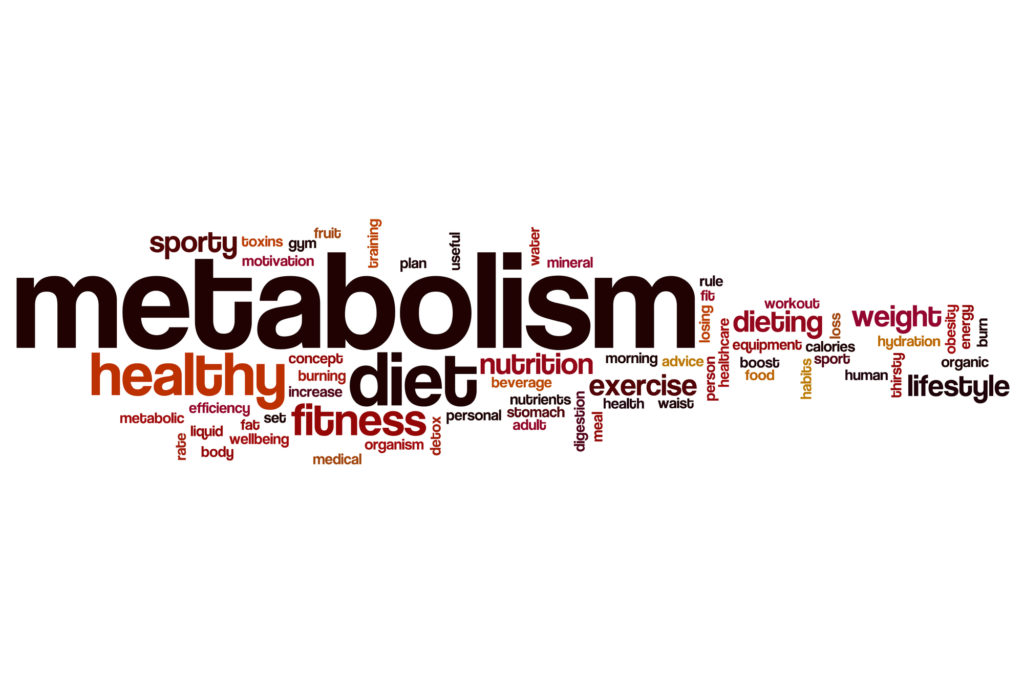We all know that one person who seems to be able to eat whatever they want without gaining a pound. Meanwhile, if we look at a cupcake we will look like a cupcake. Why is this? While there may be a lot of different causes, it generally goes back to that pesky word we’ve heard all our lives, metabolism.
What is Metabolism?
To understand how our metabolism impacts our weight we must first understand
what it is exactly. Metabolism is the combination of all the things our body does to keep us going. These processes are fueled calories.
Let’s take it all the way back to the basics for more clarity…What is a calorie? A calorie is fancy word for energy. Our bodies need calories to function, for it’s energy. Everyone has a unique set of calories that their bodies require to perform the basic tasks involved in living. This is where metabolism comes in.
As mentioned before, everyone has a unique number of calories that they need to function. For the most part this number is consistent, and a simple formula or an online calculator can be used to determine what you need. But, for those who have a slow metabolism (which may be indicated by lifelong weight loss issues) there are sophisticated machines that can tell you what your exact metabolism rate is by measuring the oxygen you breathe in and the carbon dioxide you breathe out.
When we feed our bodies, we are fueling our metabolism. When we give it the number of calories that it needs to keep our bodies going then it is happy and working well. But, when we give it too much or too little we can cause major changes to our metabolism and ultimately health without realizing.
Our Actions That Potentially Slow Our Metabolism
We’ve all been there… We want to lose weight, so we start to restrict our
calories. This method of weight loss may work for a time, but eventually it catches up with us. Our metabolism begins to slow down because we are training it to think it needs less than it does. And once the diet fails because restricting cannot last forever, we start giving ourselves more calories than what our metabolism now thinks that it needs. So, what happens to those extra calories? Our body stores them leading to weight gain.
Therefore, the diet mindset does not work. We end up in an endless cycle of temporary weight loss and inevitable weight gain. We must get to a place of trusting that our bodies know what to do with the calories that we give it. This makes the quality of calories especially important.
Our Actions That Can Increase Our Metabolism
Exercise: The more we work out our bodies the more calories we burn. As our bodies get used to this increased need for calories it becomes more efficient at using them, i.e. not storing them, which ultimately leads to us needing more to keep fueling ourselves properly. The type of exercise is important as well. Cardiovascular work is known to increase metabolism, but did you know that weight lifting is more effective? This is because lean muscle burns calories by just existing. So, as you build lean muscle by lifting weights you are burning calories both during the workout as well as throughout the day, just by having lean muscle.
Eating Frequency: Spreading out your calories throughout smaller, more frequent meals can have a positive effect on your metabolism. One reason this is beneficial is because it can prevent overeating at traditional meal times. If you are fueling your body throughout the day then you will eat less at mealtimes. This can be done through implementing 3 meals and 3 snacks to keep you fueled. This method will also keep your metabolism going. As you go throughout the day and skip meals or wait until you cannot take it any longer your metabolism has already started to slow. So, if you keep it fed it will keep burning calories more efficiently.
Lean Protein: Including lean protein at each meal or snack is another helpful method to rev up your metabolism. As you implement more protein you are more than likely offsetting the amount of refined and processed carbohydrates and/or dietary fat you are eating, leading to eating a better quality of calorie. Protein will also keep you fuller longer and will increase the number of calories it takes for your body to digest your food. As a rule, each person should shoot for 0.6 – 0.8 grams of protein per kilogram of body weight a day.
Things Outside of Our Control
There are many things in our lives that are outside of our control that may lead
to a slower metabolism. Things like genetics, gender, and age are among the most common. But there are also disorders and diseases that can contribute to this slowing as well. Thyroid disorders are a great example. Therefore, it is important to consult your healthcare provider before making any changes to your diet or lifestyle that may impact your health. You’ll want to know if there are any underlying causes to your health concerns.
So why can Susie eat the whole package of donuts and you must consume kale? She may have a faster metabolism than you. The faster the metabolism the more calories she needs to keep going. Therefore, it is important to know what your metabolism rate is and to stick with it.
Trista K. Best, MPH, LDN
Licensed Dietitian Nutritionist – North Carolina


